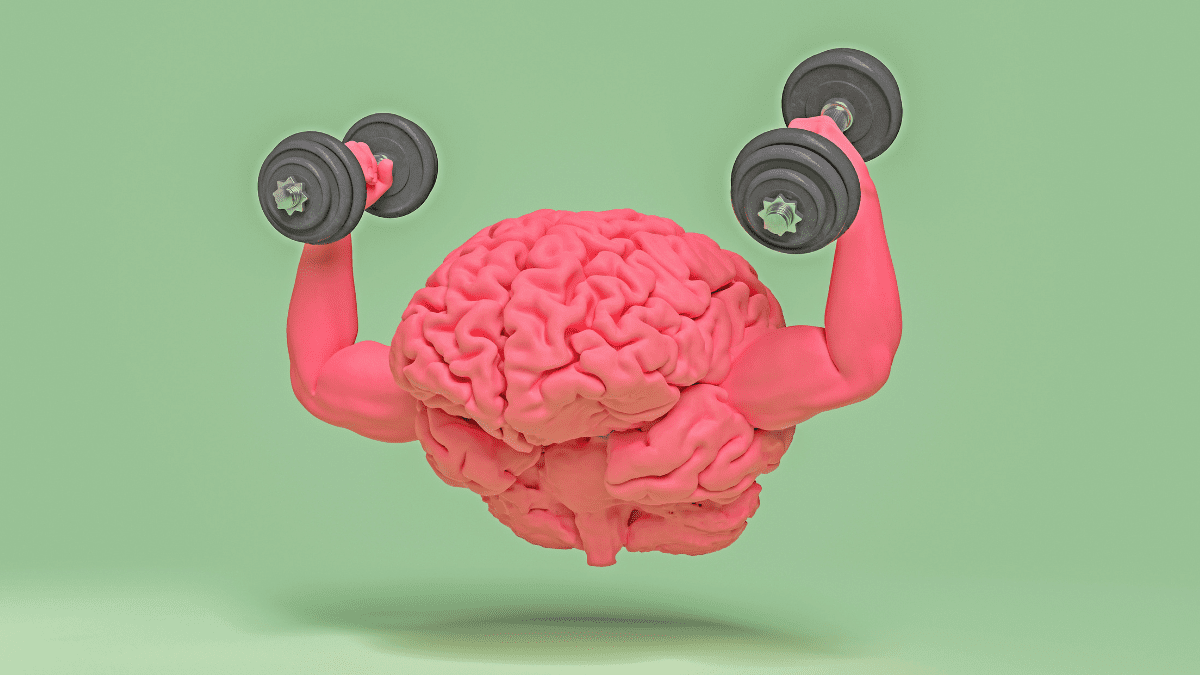Mindfulness Silences Anxiety: Stop Overthinking Now
Mindfulness stops anxiety and overthinking fast. Your mind feels trapped in fear, but you can break free. Discover a simple practice to rewire your brain and find lasting peace today!

Does your mind feel like it never stops? Overthinking fuels stress, making peace feel impossible. But mindfulness silences anxiety and helps you break free from endless mental noise.
Anxiety thrives on racing thoughts. The more you think, the more trapped you feel. Worrying about the future or replaying the past keeps your brain stuck in survival mode. But there is a way out. Mindfulness teaches you to observe your thoughts instead of drowning in them.
Studies show that mindful awareness can rewire the brain. When you shift focus to the present moment, stress loses its power. Instead of reacting, you learn to respond with clarity and calm. The best part? You do not need hours of practice. Small mindfulness habits can make a huge difference.
If you want to go deeper, explore these mindfulness practices to enhance your life. The right techniques will help you regain control over your thoughts and emotions.
Now, let’s dive into how overthinking fuels anxiety and why mindfulness is the key to stopping it fast.
How Mindfulness Silences Anxiety Caused by Overthinking
Overthinking fuels stress and keeps the mind in a loop of fear. The more you analyze, the worse you feel. But mindfulness silences anxiety by breaking this cycle before it takes control.
How Mindfulness Silences Anxiety in the Overthinking Loop
When you overthink, your brain creates worst-case scenarios. It tricks you into believing fear is real. This triggers the fight-or-flight response, releasing stress hormones. Your heart races, your muscles tense, and your mind spirals out of control.
Your brain thinks it is keeping you safe. But instead, it is keeping you stuck. The more you engage with anxious thoughts, the stronger they become. Breaking free starts with awareness. Recognizing the cycle is the first step to stopping it.
How Mindfulness Silences Anxiety from Negative Thought Loops
Overthinking thrives on negative patterns. It convinces you that constant analysis will lead to clarity. Instead, it causes doubt and confusion. Common signs of overthinking include:
- Replaying past mistakes or awkward moments.
- Worrying about the future, even when nothing is wrong.
- Overanalyzing simple decisions.
- Seeking reassurance but never feeling at ease.
The secret to stopping overthinking is not resisting these thoughts. It is learning to observe them without getting caught in their trap.
How Mindfulness Silences Anxiety by Rewiring the Brain
Mindfulness teaches you to detach from thoughts. Instead of reacting, you watch them pass, like clouds in the sky. Your brain begins to relax, realizing there is no real danger.
Science confirms this. Studies show that mindfulness rewires the brain, reducing overthinking and anxiety. By training your mind to stay present, stress loses its grip.
With regular mindfulness practice, you shift from panic to peace. You stop living in “what ifs” and start embracing “what is.”
Now, let’s explore the science behind how mindfulness silences anxiety and why it is so effective.
The Science Behind How Mindfulness Silences Anxiety
Anxiety is not just a mental struggle. It affects the body, rewires the brain, and keeps you trapped in fear. But mindfulness silences anxiety by shifting how your mind processes stress. Research shows that mindfulness strengthens emotional control, reduces stress hormones, and improves cognitive function.
Why the Brain Gets Stuck in Anxiety Mode
Your brain is wired for survival. When it senses a threat, real or imagined, it activates the fight-or-flight response. This floods the body with stress hormones like cortisol and adrenaline. If you overthink often, your brain stays in this state. Anxiety becomes a habit.
Over time, your amygdala, the brain’s fear center, becomes overactive. This makes small worries feel like major threats. But mindfulness helps reverse this process.
How Mindfulness Creates New Neural Pathways
The brain has neuroplasticity, meaning it can rewire itself. When you practice mindfulness, you shift brain activity away from fear-based reactions and toward rational, calm thinking.
Studies show that mindfulness strengthens the prefrontal cortex, the part of the brain responsible for decision-making and emotional control. With regular practice, this makes it easier to manage stress and stop anxious thoughts before they spiral.
The Role of Mindfulness in Lowering Stress Hormones
When anxiety takes over, cortisol levels rise. This increases heart rate, muscle tension, and mental fog. Mindfulness silences anxiety by activating the parasympathetic nervous system, also known as the “rest and digest” state.
Mindful breathing, meditation, and body scans signal to your brain that you are safe. This lowers cortisol, reduces tension, and restores emotional balance.
Mindfulness Improves Emotional Resilience
Anxiety often makes emotions feel overwhelming. But mindfulness teaches non-reactivity—the ability to observe emotions without being controlled by them. Instead of getting lost in fear, you learn to step back and watch your thoughts without judgment.
This practice makes you more emotionally resilient. You stop reacting impulsively and start responding with clarity and calm.
The Science is Clear: Mindfulness Works
Research confirms that mindfulness silences anxiety by rewiring the brain, lowering stress hormones, and improving emotional regulation. Next, let’s explore how to use mindfulness to stop overthinking instantly with practical techniques.

How Mindfulness Silences Anxiety and Stops Overthinking Instantly
Overthinking fuels anxiety. Your mind races, replaying the past or worrying about the future. But mindfulness silences anxiety by shifting focus to the present. The moment you break the thought loop, stress loses its grip.
Why Mindfulness Silences Anxiety Faster Than Overthinking
Overthinking tricks you into believing you are solving problems. In reality, it traps you in endless worry. Mindfulness works differently. It pulls you out of anxious thoughts and brings awareness to what is happening now.
When you practice mindfulness, your brain stops reacting with fear. Instead of spiraling into stress, you pause, observe, and respond with clarity. Research confirms that mindfulness techniques help reduce overthinking and improve emotional control.
The 4-Step Method: How Mindfulness Silences Anxiety Instantly
Mindfulness is a skill. The more you practice, the easier it becomes. These four steps will help you stop overthinking and reset your mind in moments of stress.
Step 1: Name the Thought to Weaken Its Power
When anxiety takes over, label it. Say, “This is worry” or “This is fear.” By naming the thought, you separate from it. Instead of getting lost in emotions, you gain control.
Step 2: Shift Focus to the Present Moment
Bring your attention to something physical. Notice the feeling of your breath, the warmth of your hands, or the sounds around you. This interrupts anxious patterns and brings you back to reality.
Step 3: Use Deep Breathing to Reset the Brain
Slow breathing signals safety to your nervous system. Try this: inhale for four seconds, hold for four seconds, and exhale for six seconds. This method helps calm your mind and body quickly.
Step 4: Observe Without Judgment
Watch your thoughts like passing clouds. Do not resist them, but do not engage either. This practice helps break the habit of overthinking and reduces its emotional impact.
Why This Mindfulness Practice Silences Anxiety Immediately
Mindfulness is powerful because it shifts how the brain reacts to stress. Instead of feeding anxious thoughts, you observe them, detach, and regain control. With consistent practice, your mind learns to stay present, reducing the grip of overthinking.
Now, let’s explore simple mindfulness practices for everyday anxiety relief that make this technique even more effective.
Simple Mindfulness Practices for Everyday Anxiety Relief
Anxiety thrives on overthinking, but mindfulness silences anxiety by shifting focus to the present. Small daily practices help train the brain to stay calm and clear. The key is consistency. Even a few minutes of mindfulness can create lasting change.
How Mindfulness Silences Anxiety Through Daily Habits
Mindfulness is not just meditation. It is a way of living. Every moment is an opportunity to practice awareness. When you bring mindfulness into your daily routine, anxiety loses its power.
Studies confirm that mindfulness-based interventions reduce anxiety and improve emotional well-being. Simple techniques can help reset the nervous system and stop anxious thoughts before they spiral.
Morning Mindfulness: Start the Day with Calm
How you start your morning affects your entire day. Instead of rushing, take a few moments to center yourself.
- Mindful breathing: Before getting out of bed, take five slow, deep breaths.
- Gratitude practice: Name three things you are grateful for. Gratitude shifts focus from worry to positivity.
- Set an intention: Decide how you want to feel today. This creates a sense of control over your mindset.
How Mindfulness Silences Anxiety During Stressful Moments
When anxiety strikes, quick mindfulness techniques help bring immediate relief.
- The 5-4-3-2-1 grounding method: Name five things you see, four you can touch, three you hear, two you smell, and one you taste. This grounds you in the present.
- Box breathing: Inhale for four seconds, hold for four, exhale for four, and hold for four again. This slows the heart rate and signals safety to the brain.
- Mindful observation: Pick an object and study it for one minute. Focus on its texture, color, and shape. This shifts the mind from stress to awareness.
How Mindfulness Silences Anxiety Through Movement
Mindfulness is not just about sitting still. Movement can also be a powerful tool for calming the mind.
- Mindful walking: Walk slowly, focusing on each step. Notice how your feet feel on the ground.
- Stretching with intention: Feel each movement, releasing tension from your body.
- Yoga for anxiety relief: Gentle yoga activates the relaxation response, helping reduce stress.
Consistency is the Key
Practicing mindfulness daily strengthens the brain’s ability to stay present. The more you do it, the easier it becomes. Next, let’s explore mindfulness vs. medication: can awareness heal anxiety naturally and what science says.

Mindfulness vs. Medication: Can Awareness Heal Anxiety Naturally?
Many people turn to medication for relief, but mindfulness silences anxiety without side effects. While medication helps some, mindfulness offers a long-term solution. Instead of masking symptoms, it targets the root cause.
How Mindfulness Silences Anxiety Without Medication
Medication works by altering brain chemistry. It can reduce symptoms, but it does not teach the brain how to manage anxiety naturally. Mindfulness, however, rewires the brain. It strengthens emotional control, reduces stress hormones, and promotes long-term resilience.
Research shows that mindfulness-based therapy is as effective as medication for anxiety relief. Unlike medication, mindfulness has no withdrawal effects and continues to work even when practice is paused.
When is Medication Necessary?
For some, medication provides crucial support. Severe anxiety can make it hard to function. Medication can stabilize symptoms so mindfulness becomes easier to practice.
However, relying solely on medication may not address the deeper issues. A combination of mindfulness and therapy often leads to better, long-lasting results.
How Mindfulness Silences Anxiety by Retraining the Brain
Mindfulness changes how the brain reacts to stress. When anxiety takes over, the amygdala, the brain’s fear center, becomes overactive. Medication can temporarily calm this response, but mindfulness weakens anxiety patterns permanently.
- Neuroplasticity: The brain forms new pathways with mindfulness, making calm responses more automatic.
- Emotional regulation: Mindfulness strengthens the prefrontal cortex, improving decision-making and reducing impulsive fear reactions.
- Lower cortisol levels: Meditation and breathwork lower stress hormones, helping the body relax naturally.
Why Mindfulness Has Fewer Risks Than Medication
Medication can cause side effects like fatigue, brain fog, or dependence. Mindfulness, on the other hand, empowers individuals to take control of their mental state.
A mindfulness-based approach to anxiety focuses on long-term healing. It teaches the mind to manage stress without relying on external substances.
Combining Mindfulness and Medication for Maximum Relief
For those who need medication, mindfulness can still help. Practicing awareness can reduce the required dosage over time. Many therapists recommend mindfulness alongside medical treatment for the best results.
Now, let’s summarize key takeaways and explore how to apply the mindfulness silences anxiety method to daily life.
Key Takeaways: How to Apply the Mindfulness Silences Anxiety Method
Anxiety does not have to control your life. Mindfulness silences anxiety by breaking the cycle of overthinking, lowering stress, and retraining the brain. The key is consistency. Small daily actions lead to lasting change.
Shift Your Focus to the Present
Overthinking fuels anxiety. The more you analyze, the more stress builds. Mindfulness shifts your attention from fear to the present moment. When you stay present, anxiety loses its grip.
Use Simple Mindfulness Techniques Daily
- Start your day with intention – Set a positive focus each morning.
- Practice mindful breathing – Slow, deep breaths signal calm to your nervous system.
- Detach from negative thoughts – Observe them, but do not engage.
- Use grounding exercises – Engage your senses to stay present.
Retrain Your Brain for Calm
Your mind can unlearn stress. Each time you practice mindfulness, you rewire the brain. Over time, calm thinking becomes your default. Science proves that mindfulness silences anxiety by strengthening emotional control and reducing fear responses.
Take Action Now
Inner peace is possible. But change only happens when you take the first step. Start with one mindfulness practice today. The more you practice, the stronger your mind becomes. Mindfulness silences anxiety, and now you have the tools to make it work for you.







